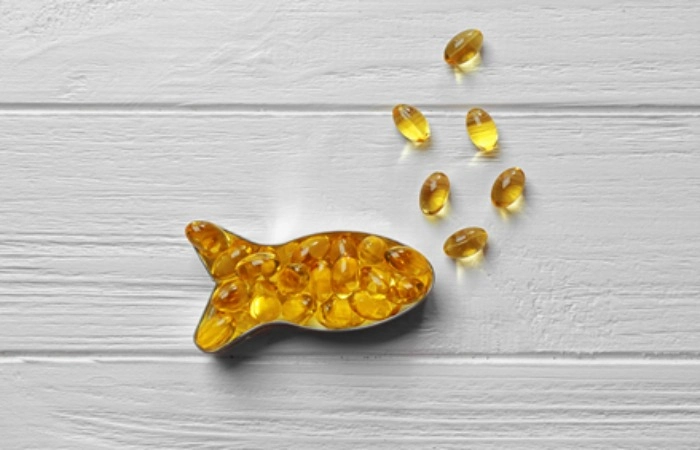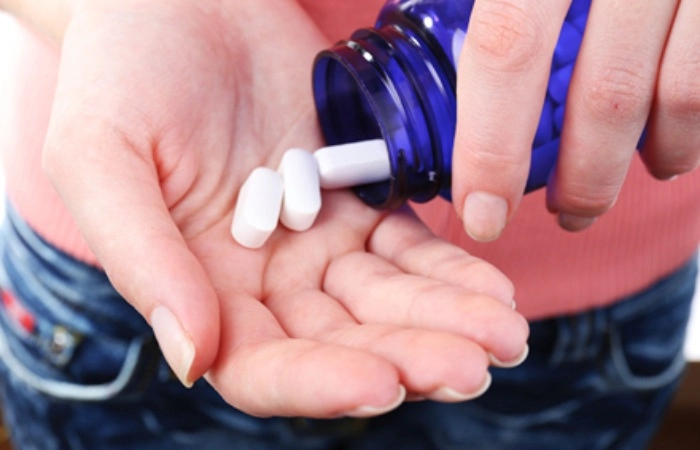As a woman, it is important to care for your health from the inside out. Looking good and feeling great comes from taking care of your body by giving it the essential vitamins and nutrients it needs to function effectively. Supplements such as collagen and fish oil help your skin, nails, and hair grow strong and healthy, while fertility supplements like CoQ10/ubiquinol can help support egg health in women over 35. Get into the best shape possible, inside and out, by discovering the top seven essential supplements for women to address your body’s specific needs.
Table of Contents
1. Calcium
Calcium is an essential mineral found naturally in milk, yogurt, cheese, and fortified products like cereal, almond milk, and bread. It is essential to bone health, as it is a vital component in maintaining strong bones and teeth. It also aids the body in muscle movement, moving blood throughout the body, and releasing hormones that help the body function. All women benefit from taking a calcium supplement, but women over 30, especially women between 51 to 71 years of age, should consider taking calcium since bone loss accelerates with age. The daily for this age group.
2. Coenzyme Q10
Coenzyme Q10, sometimes referred to as CoQ10, is an essential nutrient for women’s bodies. It is fat-soluble and can be found in fatty meats like liver, fish like tuna and salmon, and whole wheat grain products. CoQ10 helps the body’s cellular health by assisting cells in making energy that is used throughout the body. The nutrient also boasts antioxidant properties and works to prevent the creation of free radicals.
The general recommended dosage for CoQ10 is between 30 to 90 mg per day; however, women who are at risk for heart disease or cancer and women who are thinking about getting pregnant after 35 may need to take a higher dosage.

3. Fish Oil
Fish oil is a great supplement for women to take to improve their cardiovascular health. It contains high levels of omega-3s found in fatty fish such as salmon, lake trout, mackerel, and sardines, which have been shown to reduce inflammation and contribute to improved mood. Omega-3s cannot be made by the human body, making fish oil supplements an easy, convenient way to get these necessary fats into your diet. Most women can benefit from taking between 250 mg to 500 mg of EPA and DHA-type omega-3 fats per day. However, you may need to increase this to 1,000 mg if your diet is extremely low in natural omega-3s.
4. DHEA
DHEA (dehydroepiandrosterone sulfate) is a hormone naturally produced in the body by your adrenal glands. However, DHEA plays an important part in the production of estrogen, the female sex hormone. Low DHEA levels can indicate an issue with your ovarian health, indicating fertility problems in some women. Supplements, such as DHEA for women, can improve ovarian health and help get your body into the best health for reproduction and conception. Dosage for DHEA varies; however, the generally recommended safe dosage is between 50 mg and 100 mg daily for women who want to improve their reproductive health.
5. B Vitamins
B vitamins are a category of vitamins that help produce the energy your cells need so you can be active during the day. They include thiamin, riboflavin, niacin, pantothenic acid, pyridoxine, cobalamin and biotin. B vitamins are found naturally in whole grains, vegetables and fruits, but most women do not meet their daily recommended amount of B vitamins through their diet alone. A B vitamin supplement can help you lower your risk of stroke and heart attack, as well as aid in growing healthy hair. Each specific B vitamin’s daily recommended intake varies according to your age. Taking a multivitamin with B-complex can help you cover any B vitamin deficiencies.

6. Magnesium
Magnesium is an often overlooked supplement that women can take to reduce muscle cramps and help with insomnia and restlessness. It is a mineral found in a wide variety of foods, such as kale, nuts, legumes, seeds, leafy greens and dark chocolate. Despite magnesium’s availability, most people do not meet the daily recommended amount of this nutrient. A magnesium supplement can help with energy production, DNA synthesis and maintaining normal heart rhythm. Women over the age of 30 can reach a daily intake limit of 320 mg of magnesium, so, depending on your diet, you should take a supplement dosage that helps you reach this amount, as too much may cause digestive distress.
7. Iron
Iron is a mineral that the body uses to make hemoglobin, which transports oxygen throughout your body. Your body also uses iron to make myoglobin, another protein that helps your muscles get oxygen. Iron is naturally found in meat, poultry, seafood, lentils, peas, spinach, white beans and nuts. It is also found in fortified cereals. If you do not get enough iron from your diet, you may experience fatigue and anemia, so, to prevent these symptoms, it may be necessary to take an iron supplement. Iron supplements come in different forms, such as:
- Ferrous sulfate
- Ferrous gluconate
- Ferric citrate
- Ferric sulfate
- Ferrous fumarate
The recommended dosage for adult women up to 50 years of age is 18 mg, while women older than 50 should only take 8 mg. Pregnant women need the most iron out of all age groups, about 27 mg per day. It is possible to overdose on iron supplements, so it is important to speak with your doctor about the dosage your body needs.
8. Venetonics
Venotonics are key in combating venous insufficiency, a condition more commonly seen among women. This condition, primarily affecting the legs, can cause serious pain and even pulmonary embolisms. Using venotonics can help to strengthen blood vessel walls, thin the blood, and reduce oedema.
Choose the Supplements That Are Right for You
Give your body the nutrients it needs to perform at an optimal level. While each of these supplements can be beneficial to your body, it is ideal to choose a few supplements that meet your body’s specific needs. To improve your egg health over 40, focus on supplements such as CoQ10/ubiquinol or DHEA. If improving your sleep and overall mood are important, try taking magnesium or fish oil.
There are some cases where these and other supplements can be harmful to your health. It is always a good idea to consult with your doctor before starting any new supplement, so make a list of the supplements you believe will support your health and discuss the correct dosage and regimen with your doctor.






